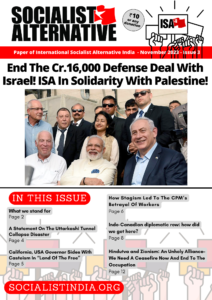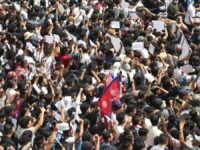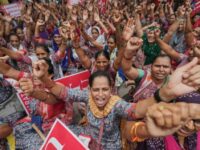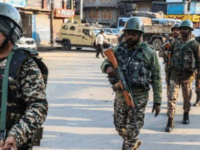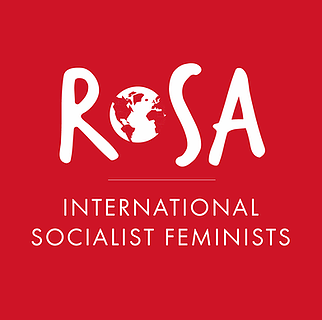Why We Are Disaffiliating From International Socialist Alternative

On Saturday, 24 August 2024, the sympathizer organization known as ISA India officially voted unanimously to disaffiliate from International Socialist Alternative. It is with great disappointment and dissatisfaction that we have reached the point of having to sever ties with ISA. However, after careful consideration, we have arrived at the unavoidable conclusion that this move is essential for the growth of a healthy revolutionary organisation —both in India and globally. As Leon Trotsky liked to say, sometimes one has to step back to make a better jump. In this spirit, by distancing ourselves from an organization that has failed to uphold the principles it claims to stand for, we believe that ultimately, this difficult decision will positively strengthen our struggle for a socialist future. Below is the full text of our resolution, followed by an explanation of what motivated it:
The sympathizer group of ISA known as India Socialist Alternative resolves that:
- We continue our commitment to building a revolutionary, Marxist, and internationalist organization within India and worldwide,
- The majority faction of ISA’s leadership have irreparably damaged the reputation, integrity, and politics of our International,
- This damage has been done not only to safeguarding and socialist feminism, but also to Marxist principles of anti-colonialism and anti-imperialism, and the democratic process itself,
- Therefore, we do not intend to join ISA and hereby disaffiliate as a sympathizer group.
- We accept the invitation from the Faction to Defend Safeguarding, Socialist Feminism and Internal Democracy to participate in the international meeting on 31 August and 1 September to discuss establishing a Project for a Marxist Revolutionary International,
- Socialist feminism, anti-colonialism and democracy are not tangential, but rather foundational necessities for building a Marxist international,
- We commit to a patient approach to building a new International with the understanding that agreement formed through patient and deliberate discussion is the only way to build a strong International capable of dealing with the conditions of today’s world.
The central disagreement that began this dispute was the severe mishandling of a safeguarding case which took place in another section of the international. In the interest of protecting the victims privacy, we will not share the details of the case, save that a leading member was accused of egregious abuse and the allegations were credible, but the process of handling the grievance was completely undermined in the interest of retaining a comrade considered valuable to the organization above and beyond its stated values of socialist feminism. This undermining amounted to an outright violation of the spirit and the letter of ISA’s international Code of Conduct, including using victim blaming language; searching for proof beyond a reasonable doubt —hence putting the burden of proof on the victim’ shoulders, while at the same time, disbelieving and discounting their distressing testimony on spurious ground—; failing to account for the psychological and emotional effects of trauma; ignoring the power dynamics involved; hiding the case from all international bodies for many months despite its extremely grave nature, and when it was finally discovered, deliberately withholding crucial information about the case from the same bodies; producing a falsified grievance officers’ report; refusal by the leading comrades of the section concerned to recuse themselves from international votes which evaluated their own mishandling, sanctioning in this way an obvious conflict of interest; denying the political causes of this massive failure by the leadership; displaying a complete lack of self-awareness and evading any serious steps toward accountability by those primarily responsible for the mishandling and more.
When resistance was made to this grave injustice within the international bodies, a campaign of systematic discreditation and political sabotage was used in order to try to paint the quest for accountability as a Trojan horse disguising a degenerated political opposition which had fallen into opportunism and bourgeois identity politics. Though the self-described majority (in reality a completely fractured political body only held together by their wrong approach on the case itself) ultimately arrived at the conclusions it was forced to, namely that the accused member should have been expelled at the conclusion of the original investigation, this decision came far too late, with a litany of inconsistent and inexplicable excuses rationalising the original decision, and only as the majority leadership realized that the case would soon break to the membership at large —while the political attacks against the opposition continued and even intensified, and the latter’s material was prevented from circulation in the International for months. To this day, only a very limited and businesslike apology has ever been issued, more for the purpose of being able to claim that an apology was made and save the face of the ‘majority’ leadership than to actually declare intent to rectify what had transpired, and only in response to the public statement that was made by the Faction to defend Safeguarding, Socialist Feminism, and Internal Democracy (an opposition group that was created inside ISA to uphold the International’s strong commitment to socialist feminism, internal democratic practices and a healthy safeguarding approach, which Indian comrades were part of).
A consistent point articulated by the faction was that this mishandling and cover-up was neither accidental nor the result of a mere technical failure, but were rooted in politics. The deliberate choices to protect a self-admitted abuser inside the organization, to trample upon our most fundamental socialist feminist principles, and to betray a survivor of gender-based violence—all in the name of preserving a male cadre considered too politically important and talented— exposed the shallow and superficial commitment to feminism and the struggle against oppression within parts of ISA’s leadership, and came along with a broader and more explicit questioning of the importance these issues should hold in our perspectives and daily work.
The huge protests that have erupted across India in response to the horrific rape and murder of a trainee doctor in Kolkata starkly demonstrate the absurdity of the ISA majority leadership’s claims that feminist struggles worldwide are on the decline. The nationwide strikes organised in the medical sector on this very issue further highlight the deep flaws in their assertion that we should “want young people to continue to participate in struggles against oppression but we also want to direct them to the class struggle”. This perspective is not only misguided but fundamentally ineffective, as it fails to recognize that the working class is both exploited as a class and affected by specific oppressions—oppressions that are integral to shaping the class struggle today.
In the aftermath of the case going public, the defense by the majority faction of their wrong methods in the safeguarding case continued to escalate with a series of undemocratic maneuvers to try and get exclusive control over the finances of the international, lock our members out of positions such as the International Editorial Board and even the internal Facebook group, all while continuing to hide and distort the reality of the case from the membership, especially in the section where the violation occurred. In that section, only six debates ever took place among the larger membership: one local, four regional debates and one at the national conference, while information from the opposing side was continually suppressed. The smear campaign against the faction turned openly to the membership, with accusations designed not only to vilify the faction, but also to muddy the waters around the case itself, being peddled to the members.
It was in the face of international bodies that were completely hollowed out by the increasingly bureaucratic stranglehold of the majority leadership, whose only decisions were to rush forward with a world congress imposed without the slightest consultation with the opposition and to attempt to seize control of the financial resources of the organization, that the decision to depart from ISA was made. However, it was by no means the only grievance that existed between our grouping and the international leadership of the majority. Both before and during the safeguarding struggle we also faced issues regarding a crass lack of sensitivity to the situation of people in the neo-colonial world, and a lack of serious engagement with our group. This included a leading member of the USA section meeting on behalf of ISA with leaders of a bourgeois Indian political party without our consent or even our knowledge. Taking action or elaborating perspectives without consulting the affected groups undermines democratic participation, and can lead to actions or positions that are out of touch with grassroots realities. It reflects a top-down approach that disregards the input of those directly involved in the local struggle, and is fundamentally harmful to fostering genuine revolutionary cooperation. Appeals towards this comrade and the leadership of the section in general to communicate and work alongside our group were largely dismissed in favor of the argument that our duty as internationalists was to follow the lead of this much larger and more developed section, despite it lacking in strong political perspectives on India. This culminated in an attitude towards our section by the US and Canadian leadership that was narrated to the broad membership, that we were part of an opposition to their program, evident in hostile attitudes towards our group and our work, while still remaining uninformed about fundamental issues within India and lacking even basic background information. It also resulted in our article on Khalistan being undemocratically blocked from international publication by a member of the Canadian Executive Committee, while they attempted to rush through their own statement on the assassination of a Khalistani militant leader that was highly deficient in its analysis, through the same editorial board, all the while refusing to meet with us and making veiled accusations that we were soft on Hindu nationalism. We characterized the attitude from the Canadian leadership as Western chauvinism, a statement we stand by today.
These things are not new to the current period, but extend back to the final years of the CWI and the bureaucratic practices that dominated the International at that point. The CWI originated during a point where the leadership of the Fourth International was giving undue support to anti-colonial guerrilla outfits without regard to the politics of these organizations and what the future would be for them, as well as putting faith in student revolts as the primary focus of revolutionary transformation and other ideas that pushed away from a working class centered approach. However, in issuing a necessary course correction and bringing revolutionary Marxism’s focus back to class analysis, a blindspot also emerged within the organization itself which failed to understand the massive and consequential impact of women and PoC workers. While heroic work was undertaken in parts of the neo-colonial world, the sections in these regions were often treated more as an annex of the European organization than as equal and contributory members of a true international. In the late years of the CWI, the relationship had degenerated in many cases into a transactional exchange of money for political support while very little political development was happening on the ground. While certain efforts were made during the 2019 re-foundation as ISA, this attitude was not fully excised. It was clear that the USA and British leadership still saw themselves as the leaders of the international rather than as members of equal status, and white male normativity prevailed in ways that encouraged the toxic culture referred to above.
International solidarity does not simply mean rich countries paying poor countries, it has to include an urge to understand the political situation in other parts of the world with the same level of depth that the issues of the dominant imperialist powers are understood in the neocolonial world. It has to include giving a voice to those who otherwise would not be heard. ISA failed on both of these accounts, and our intention is to move forward by working affirmatively to create the conditions in which a truly international organization can be developed. While financial support made it possible for some of our comrades to engage with the international on a face-to-face basis, for example at the summer school and Rosa conference, we also had to spend many long hours reckoning with the obstruction of our relationship with the International by some members in the West who considered themselves close to Indian politics and attempted to dominate us via their leverage in the leadership. An international which had genuinely supported our work, communicated clearly, and simply respected the fact that we were forming strong perspective based on in person encounters and resources that they had no access to (for example media in languages that they couldn’t understand), could have helped us grow both numerically and politically at a faster rate.
Recent public material from ISA’s majority leadership advocates the building of “a serious Marxist force on a global scale, at least initially in several of the most important imperialist countries”. While building strong Marxist forces in the imperialist core is undeniably critical, focusing on the advanced capitalist countries as the primary starting point for building a revolutionary international represents a theoretical throwback, but also a pragmatic shift since the majority leadership has lost support and alienated significant segments of ISA’s membership active in Mexico, Brazil, Argentina, Colombia, Tunisia, South Africa, Côte d’Ivoire, India and Sri Lanka. This perspective neglects the interconnected dynamics of global capitalism and disregards the vital contributions and agency of movements in the neo-colonial world. It is at odds with the weight occupied today by the working class in large parts of Asia, Latin and Central America, Africa and the Middle East, and fails to acknowledge that these regions have been the epicenters of some of the most remarkable revolutionary struggles of recent years — with Bangladesh being the latest of a long series.
This position was not arrived at by chance, but based on a lack of understanding of the realities of the colonized world by the leadership, including the refusal to seriously engage with gender violence. That the leadership of Socialist Alternative USA considered mass movements such as Black Lives Matter and the Women’s March as failures due to the “corruption of identity politics” demonstrates not only a tone deafness to the fundamental reality of social issues at the heart of the working class, but also a sectarian attitude towards movements in general, which directly contributed to the hostile attitudes we encountered from the section’s leadership that undermined our work. As well, to make such feebly one-sided projections based on North American perspectives as the assertion that the global feminist movement was in retreat because of the overturn of ‘Roe vs Wade’ (the constitutional right to abortion) in the US, that the worldwide movement against racism was crudely emulating US identity politics, or that the Canadian government had refused to extradite Air India bomber Talwinder Singh Parmar out of an abundance of concern for human rights (as mentioned in our article, the reason provided by the Canadian government was a racially tinged technicality argument about the Commonwealth Extradition Treaty), reflect an extreme overstatement of the importance of North American politics in the global political milieu; in essence, a chauvinist approach.
The fundamental reality that must be apprehended is that, although the West has changed in composition and become more racially diverse, and with a greater presence of women in the working class, the concept of majority that was envisioned by the CWI was never representative of the world even at the time of its founding. Massive uprisings and tectonic shifts in the class balance of forces have been driven by so-called “social” issues, that is, the quest of oppressed members of the working class to be recognized as workers and to achieve fundamental human rights.
As Dr. Ambedkar wrote, “If the socialists wish to make socialism a definite reality, then they must recognize that the problem of social reform is fundamental, and that for them there is no escape from it.” Issues of oppression need to be handled with humility in order to establish trust, and this was a primary failure of the Communist Party of India in the days of Dr. Ambedkar, not only failing the Dalit community, but also relegating itself to a marginal role in the long-term politically. The fact that abuse of a woman was not treated as a serious issue is entirely symptomatic of the misogynist and patriarchal culture that is still now ravaging the world, including here in India where mass protests and outrage are continually erupting over the condition of women, the cases of RG Kar, Sandeshkhali, Pondicherry, Kalakshetra, and Manipur just to name a few in recent times. This has not spared many parties and organisations on the left —or those claiming to be— as illustrated, most recently, by the CPI(M) in Kerala shielding several powerful male figures accused of sexual assault within the Malayalam film industry. It is no longer acceptable to treat women as an inconsequential minority. For socialists to minimize and marginalize the feminist movement it’s not only a massive disservice to the duty of being a tribune of the people, but also will simply lead to the socialists being marginalized themselves. It is our duty to fight for women’s rights not only because it’s the right thing to do, but also because it is necessary for Marxists to unite the entire working class. This includes not only attacking the ruling class, but also challenging gender oppression within our own class and holding our own comrades accountable.
Our organization, as stated, remains committed to the principles of Marxism and Bolshevism. To the principles of class struggle, democratic centralism, and anti-imperialism, this move represents not a departure but a reaffirmation. To all those currently still in ISA, we encourage you to join us in attending the Project for a Revolutionary Marxist International discussion meeting on 31st August-1st September. We will continue operating in solidarity with the working class and fighting for a socialist future.
Solidarity,
The Former ISA India
